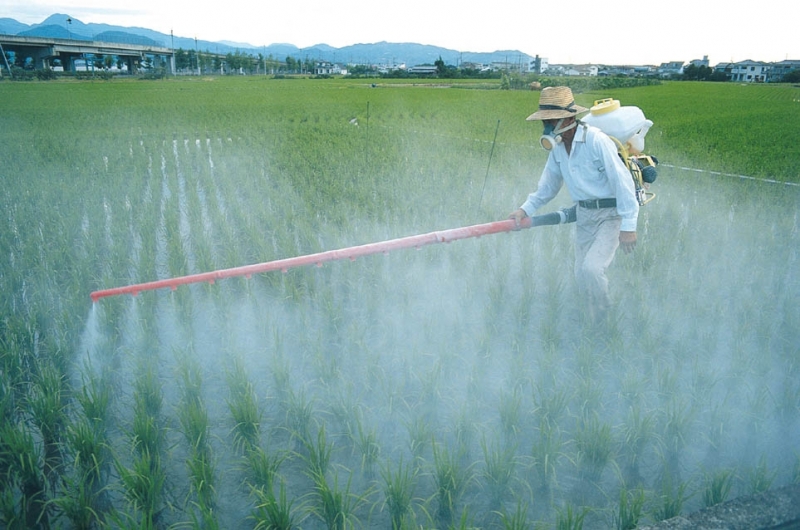 It used to be that growing up near farms had benefits: fresh fruits and vegetables, open spaces, and a simpler way of life. With the rise of agribusiness, farming has changed to a dependence on chemical pesticides and herbicides, migrant workers, and pollution in the water and air.
It used to be that growing up near farms had benefits: fresh fruits and vegetables, open spaces, and a simpler way of life. With the rise of agribusiness, farming has changed to a dependence on chemical pesticides and herbicides, migrant workers, and pollution in the water and air.
The family farms of my parents’ childhood are endangered. With that endangerment goes the clean living of farm life. Now living near agriculture is a risk. A new study has found that prenatal exposure to agricultural pesticides results in a lower IQ in children.
Photo credit: Global Water Partnership – a water secure world via Foter.com / CC BY-NC-SA
Pesticide exposure has been linked to a host of health problems. From low sperm count to autism, we know pesticides have an adverse effect. The American Association of Pediatrics recognizes pesticides as a neurotoxin.
A new study examines the proximity of children’s homes and their IQ at 7-years-old. Published in Environmental Health Perspectives, researchers studied 283 mothers and children in Salinas, California. The families lived within one kilometer of when the mothers were pregnant. Specifically, five “potentially neurotoxic pesticide groups” were studied:
- organophosphates
- carbamates
- pyrethroids
- neonicotinoids
- manganese fungicides
Photo credit: JR || P h o t o g r a p h y via Foter.com / CC BY-SA
Researchers found a decrease of 2.2 points in overall full-scale intelligence and 2.9 points in verbal comprehension as a result of in utero exposure to agricultural pesticides. ((http://ehp.niehs.nih.gov/EHP504/))
In 2007, 684 million pounds of pesticide active ingredients were used in agriculture in the U.S. (Grube et al. 2011). California, the state with the largest agricultural output, uses 25% of all U.S. agricultural pesticides, or 186 million pounds annually (CDPR 2014)…
We observed a nearly universal trend of lower IQ scores for all domains with greater use of individual OP pesticides and other potentially neurotoxic pesticide groups within 1 km of the maternal residence during pregnancy.((http://ehp.niehs.nih.gov/wp-content/uploads/advpub/2016/7/EHP504.acco.pdf))
According to the authors, previous studies have found, “Residential proximity to agricultural pesticide use has been associated with neural m tube defects and autism but more subtle outcomes like cognition have not been studied.” This is the first study to overall cognition.
http://ehp.niehs.nih.gov/EHP504/
Leave a Reply